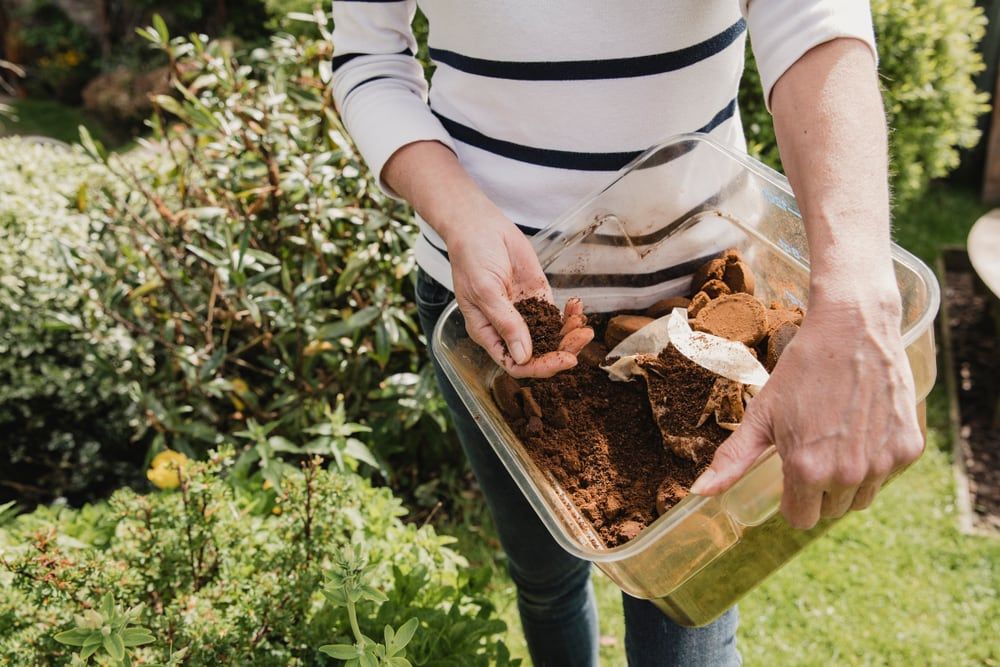How to Use Coffee Grounds in Your Garden to Benefit the Plants & Soil
Coffee Grounds as Fertilizer
Many people use mulching, and there's a way to do that using coffee grounds. Simply applying it directly as mulch around acid-loving plants is enough. This includes plants like blueberries, roses, azaleas, and more.

Mixing the grounds into the soil will also improve soil structure and drainage, but the method shouldn't be overused because not every plant likes the acidity. Using the coffee grounds on the border soil of established plants is a good way to ensure the acidity won't spread over to other plants.
Coffee Grounds as Pest Control
Another way to apply coffee grounds in the garden is to use it for pest control. It can keep ants, snails, and slugs away, which is better than using heavy chemicals. Coffee grounds act as a deterrent for slugs and snails due to the rough texture irritating their bodies. It's not just the texture, but the actual caffeine content may also have a toxic effect on them.

Still, the grounds won't be enough to deter the snails and snugs forever. It should be used with other types of traps and barriers. The grounds also have to be applied regularly to be used as effective pest control. The best way to apply coffee grounds is to leave them to compost first and reduce their acidity. This makes them break down and suitable for a wide range of plants. The grounds can also create a water-restricting barrier, which should be avoided.